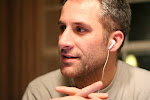
Shrinking Globe Easier to Conquer?
by Mr. Houston
Today in class, we discussed the “annihilation of time and space” caused by modern communication, technology, and travel. If you lived during the Ming Era, it would take you months to travel from China to America. Today, it takes a simple 14 hour flight. Or if you wished to communicate by letter, you would wait months for an outdated response. Today, it happens in an instantaneous email, text, or satellite transmission. Truly, the world is smaller. And make no mistake; a smaller world is easier to conquer.
For example, rebellious Confucian scholars toppled the Mongol Yuan Dynasty, exchanging it for the Ming Dynasty. Originally, unified under Genghis Khan, the sons and grandsons decentralized the Mongol Empire into various Khanates, including the Yuan. Conquest and expanding trade routes made their world paradoxically larger and smaller. The Mongols spread too far, too fast and were ripe for collapse by...
1) Too little military to maintain too much border
2) Tax farming corruption leading to a growing gap between urban rich and rural poor
3) The devastating plague
The leader of the Ming revolt, Zhu Yuan Zhang, rejected Mongol culture by closing off trade with Central Asia and the Middle East, and reasserted Confucian ideology. Thus the Ming set off a yo-yo effect of sorts; China, a great civilization that was vitally connected to trade routes, shut herself off and turned to internal strengths. During this era, “isolation” was still possible because of great distances to other empires.
Those great distances have been conquered by cell phones, airplanes, and instant messaging. The world still grows larger and yet smaller. Isolation (though appealing at times) is no longer a viable foreign policy. Sorry Geo Washington.
(see President Washington's Farewell Address http://en.wikipedia.org/wiki/Washington)
Regardless, a cyclical pattern exists in world history between periods of hegemonic power whereby an overgrown, centralized authority collapses. Decentralization ensues (remember the Dark Ages/Feudalism?). Gradually, power is consolidated until a strong centralized authority re-emerges from the ashes of decentralization. The shifting process may take many long centuries or mere decades. History’s lesson: Rinse and repeat.
Is the globe (which has been primarily decentralized since the birth of the "nation-state") headed towards a strong, global-centralized authority (a single, global government)? No, this is not WWE’s “New World Order.” Considering current events (including the Law of the Sea Treaty, NATO, NAFTA, the UN, the EU, WTO) one might conclude that yes, indeed, we are headed for such a scenario. Is this good for American hegemony? Um, no.
By the way, this was mentioned in class: Why would the USA even consider surrendering a portion of its sovereignty to a larger, global governing body (see Sea Treaty)? The usual answer: money. But what is the ultimate cost of free trade? What will it cost generations of future Americans, including our children and grandchildren, if we sell out small portions of our sovereignty for profit? Of course, the issue is more nuanced than I portray. As always, read and question for yourself (http://en.wikipedia.org/wiki/United_Nations_Convention_on_the_Law_of_the_Sea).
I face a pressing conflict as a public school, social studies educator. I am charged with the task of creating “informed and productive citizens.” Does that mean citizens of the United States of America or citizens of the Global Community? Some of my fellow public educator colleagues across the nation would argue the latter. Since it is American tax dollars that pay my salary (and also because I strongly believe it to be true) I will pursue the mission of shaping “informed and productive AMERICAN citizens.”
I still mean it when I pledge allegiance to the flag every morning. I get goose bumps every time I hear the National Anthem, especially at Friday night Cougar football games, standing side by side, surrounded by my community and my students. I believe in democracy and freedom. I believe America is not perfect, but still the best place in the world to live. Like President Reagan, I believe America’s best days are still ahead.
(See President Reagan's Farewell Address http://www.reaganlibrary.com/reagan/speeches/farewell.asp)
Of course, how could I be a good teacher and not equip my students for the inevitable and increasingly global economy? Let’s face it, America will either remain the global hegemony or it will not. Will democracy and freedom win the world? Or will some other ideology or force centralize its own global power? Either way, the world is smaller now. A smaller world is easier to conquer. The only question is who will conquer it?
 Big Brother is Watching?
Big Brother is Watching?

